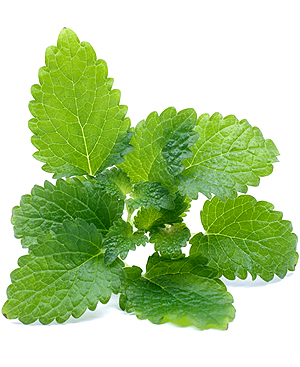No products
Lemon balm syrup - 320g
Lemon balm syrup helps in sleep disorders, insomnia and depression...
![]()
Description of herb
Who doesn't know the wonderful warm lemon scent of Lemon balm, which calms the mind and pleases every heart. It has a positive effect on melancholy, memory impairment and general lability.
This perennial plant with white flowers grows to a height of 70-150 cm and its aromatic leaves smell like lemon. It comes from the eastern Mediterranean and Asia Minor. It is suitable for protected and sunny locations with permeable humus soil. The whole stem is collected before the flower, which needs to be dried quickly, but not in the sun.
Healing effects
Lemon balm (Melissa officinalis) acts mainly as a sedative, mostly in the digestive tract (gastric neurosis) and heart (cardiac neurosis, palpitations, etc.), soothes bouts of cough, increases bile secretion, prevents the formation of gases, slows the heartbeat, slightly reduces blood pressure. Lemon balm tea reduces stress, soothes, relaxes and makes sleep more pleasant. Lemon balm has antiviral effects, especially against herpesviruses - cold sores.
It also strengthens the central nervous system, has a sedative effect, relieves cramps and muscle tension, can be used for milder forms of neurasthenia, depression, migraine, allergies of nervous origin (eg stress-induced asthma), helps with abdominal pain, bloating, infectious diarrheal diseases, painful menstruation and menopause.
Externally, Lemongrass can be used for rheumatic swellings, bruises and blood bruises, and in breastfeeding women at the risk of hardening of the milk in the breast.
Active substances
- essential oils - citral, citronellol, citronellol, geraniol, linalol - 0.1%
- tannins - 4%
- hydroxytriterpene acids such as ursolic acid
- bitterness
- slime
- flavonoids
- mineral substances
Properties
Anti-bacterial, anti-oxidant, anti-convulsive, anti-viral, aromatic, anti-flatulence drug, brain stimulant, anti-inflammatory agent, regenerative, soothing, soothing (mild), tonic.
Recommended at
- anxiety
- chronic fatigue
- cold
- cold sores
- colic
- depression
- dizziness
- fever
- gastrointestinal problems
- headaches
- herpes virus
- hypertension
- hypothyroidism
- insomnia
- menstrual cramps
- nausea
- painful urination
- heartbeat
- shingles
- upset stomach
- viral infections
- injury
- sleep disorders
Dosing
Adults and children from 12 years: 10 ml 3 times a day
Children from 3 to 12 years: 2-3 times a day 10 ml (1 ml = 15 drops)
The glycemic index of our fructose syrups is approximately 25 per 100 ml.
Side effects
There are no known cases of overdose or any adverse effects but not suitable for children under three years, pregnant and breastfeeding mothers.
REMEMBER: Tell all your health care providers about any complementary health practices you use. Give them a full picture of what you do to manage your health. This will help ensure coordinated and safe care.


